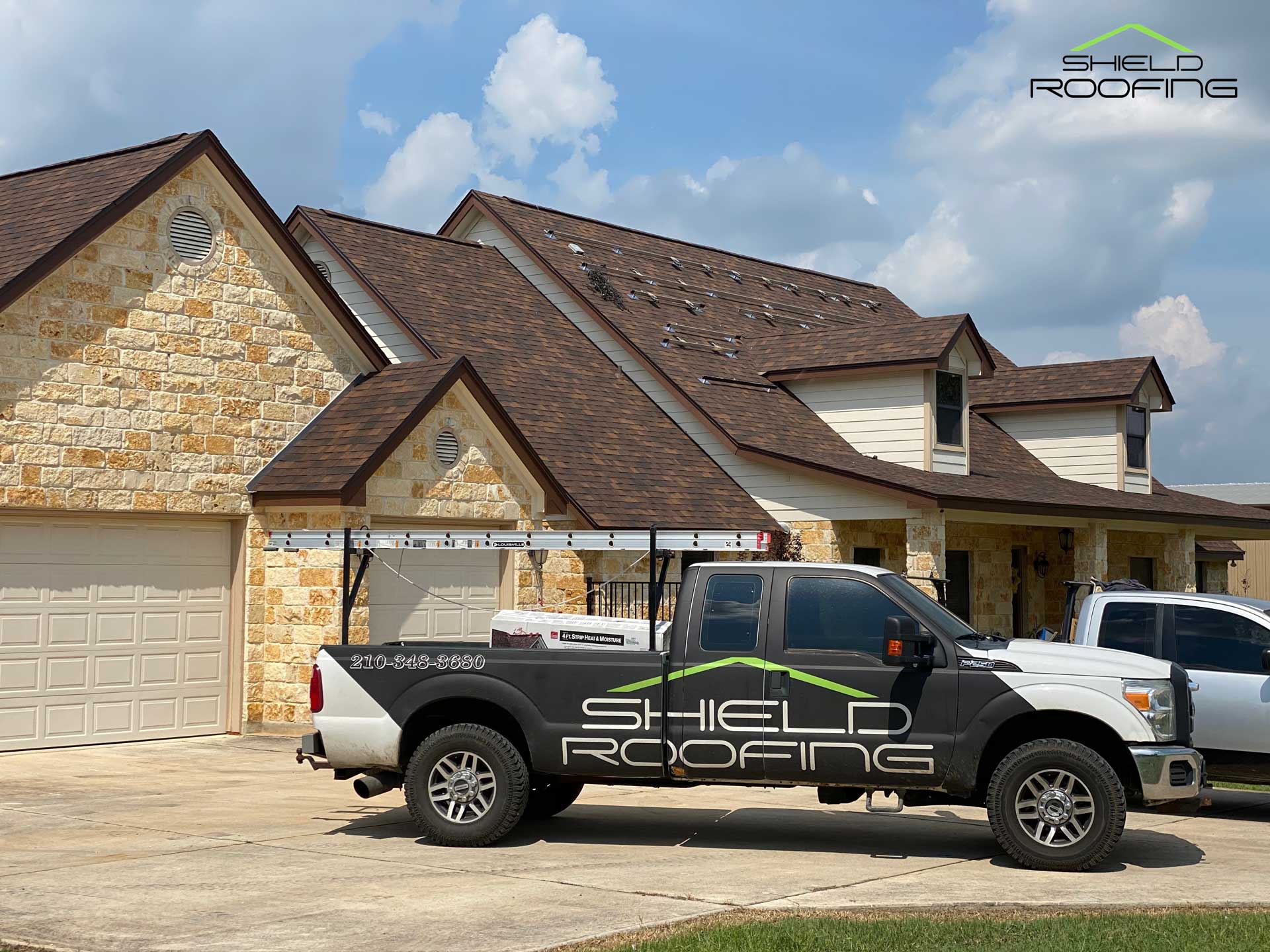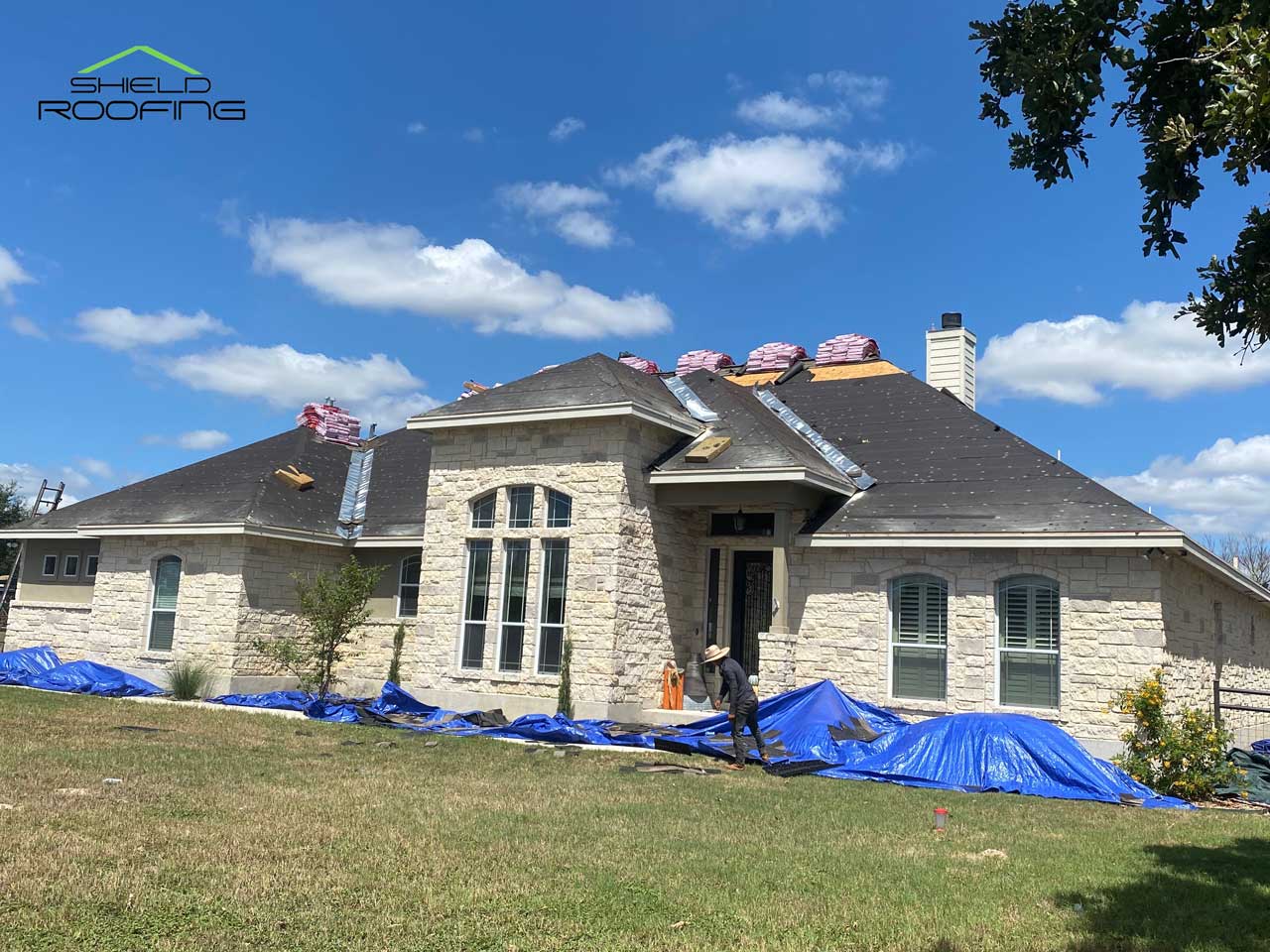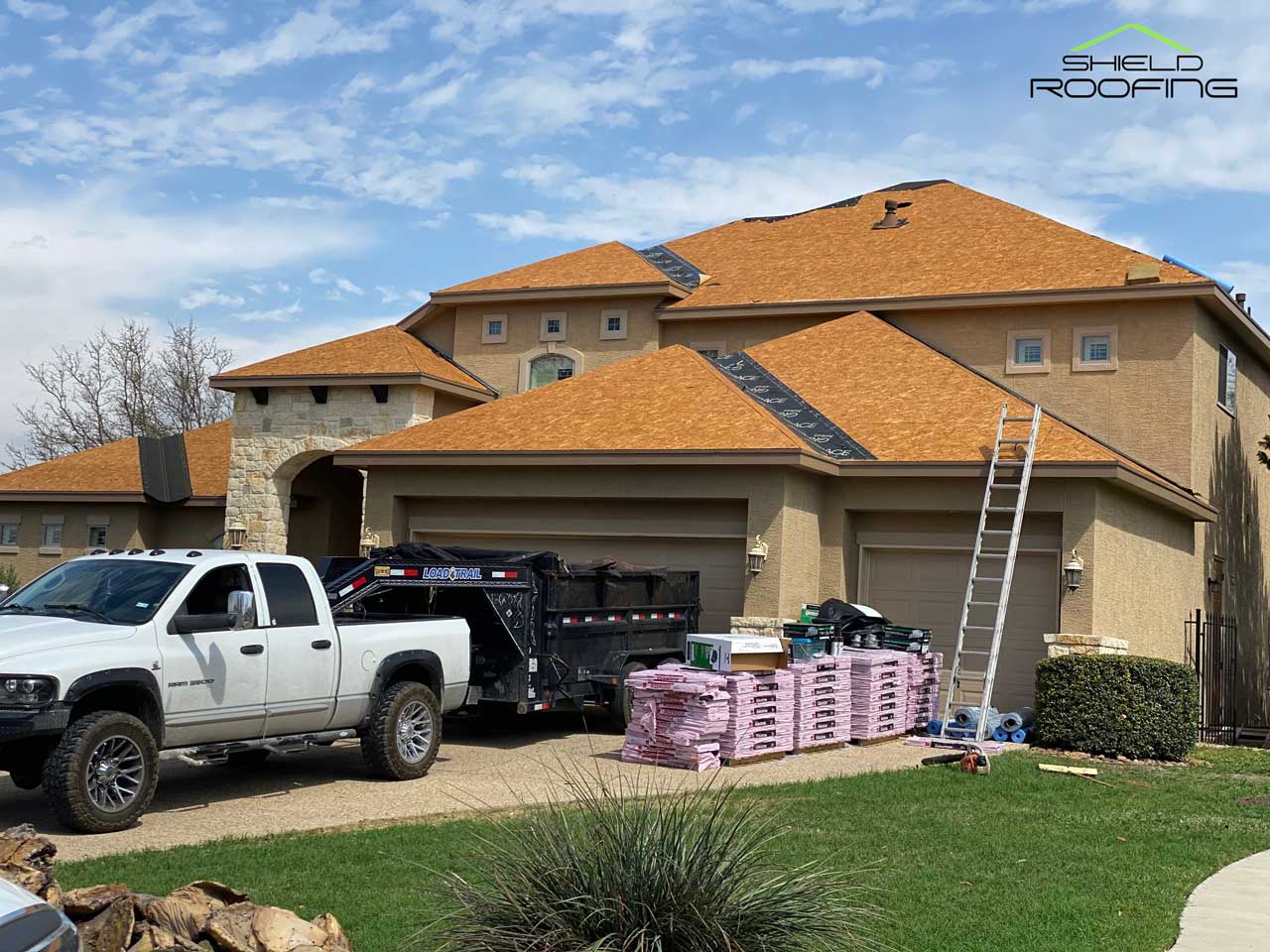The roof of any building is an integral part of its structure. It provides protection from the elements and adds to the overall look of a property. As such, it is important for homeowners to understand their roofing warranties in order to ensure that they are adequately protected against damages or repairs due to shoddy workmanship or faulty materials. This article will provide readers with an understanding of different types of roofing warranties available and how they can be used to protect one’s financial interests.
When selecting a roofing contractor, it is essential that consumers know what type of warranty coverage they should expect when investing in new construction or repair work on their roofs. Therefore, this article will explain the differences between manufacturer’s warranties, labor-only warranties, full installation warranties, and extended service agreements so that readers can make an informed decision regarding which warranty is best suited to meet their needs.
Finally, the article will also address some common questions related to roofing warranties as well as provide tips on how to ensure that your warranty remains valid over time. By being aware of these terms and conditions associated with various types of roofing warranties before making any decisions, homeowners can rest assured knowing that all necessary measures have been taken to protect them financially from unforeseen circumstances down the road.
Overview Of Roofing Warranties
When it comes to roofing warranties, there is a lot of information to consider. Understanding what type of warranty will best suit your needs can help you save money and guarantee that the job is done correctly. This article provides an overview of different types of roofing warranties available on the market today.
The most common type of warranty offered by roofers is known as a manufacturer’s warranty. These warranties typically cover both labor and materials for up to 10 years after installation. Most manufacturers also offer additional coverage such as storm damage repair or replacement in the event that something goes wrong with the roof shortly after installation. In addition, some manufacturers may even provide complimentary inspections during their stated period of coverage.
Another popular option when it comes to roofing warranties is contractor-backed guarantees. Companies offering these types of warranties often require customers to pay an extra fee upfront for repairs if needed down the road – however this could be worth it depending on how long you plan on keeping your home and how much confidence you have in the quality of workmanship provided by your contractor. Many contractors will also provide extended service contracts which allow for regular maintenance visits at discounted rates over time, ensuring longevity and good performance from your roof system over its lifetime.
No matter which kind of warranty suits your needs best, make sure you do plenty of research before making any final decisions so you know exactly what’s included and understand all terms and conditions associated with each one. Doing so can help eliminate potential issues later on while guaranteeing peace of mind knowing that should anything go wrong, you are covered accordingly!
Types Of Roofing Warranties
Roofing warranties are important for homeowners to understand in order to ensure that their roof is adequately protected against damages or defects. This article will explore the different types of roofing warranties available and provide an overview of each one.
First, there are four main types of roofing warranties: 1) Manufacturer’s Warranty – this covers any factory defect, 2) Installer’s Warranty – which covers defective installation workmanship, 3) System Warranty – which provides comprehensive coverage for both manufacturer and installer defects, 4) Material Defects Warranty – this warranty covers materials used during the construction process. These warranties come with varying degrees of protection and can be offered by either a contractor or the manufacturer themselves.
It is essential to read through all details provided in a warranty before signing it as some may not cover certain problems such as wind damage or natural disasters. A good rule of thumb when selecting a warranty is to opt for one providing more than just basic coverage; this could include items like labor costs associated with securing loose shingles or tiles from storms, along with minor repairs due to wear and tear over time. Additionally, many manufacturers offer extended warranties if the initial warranty has expired but you must pay extra for them.
Factors That Affect Roofing Warranty
When considering the different types of roofing warranties, it is important to consider the factors that may affect their validity and efficacy. These include material quality, installation process, contractor experience, and maintenance frequency.
- Material Quality: The type of materials used for a roof play an integral part in determining any warranty’s effectiveness. High-quality materials such as metal or composite shingles are more durable than other options such as asphalt, so they come with longer lasting warranties.
- Installation Process: Another factor that affects roofing warranty is professional installation. If a contractor fails to properly install new shingles on your roof or does not follow manufacturer specifications then this will void any coverage provided by the warranty. In order to ensure proper protection from long term damage caused by storms, hire experienced professionals who have knowledge about regional weather patterns and building codes.
- Maintenance Frequency: Regularly scheduled maintenance can also help extend the life of a roof and its associated warranty. This includes removing debris which can cause moisture build up and lead to mold growth, checking flashing around chimneys and vents for corrosion or cracking, ensuring gutters remain clear of leaves and branches, and inspecting shingle edges for wear or curling.
To keep your roof in top shape there are several items homeowners should pay attention to:
* Check regularly for signs of damage due to adverse weather conditions
* Clean out any clogged gutters before heavy rains occur
* Have regular inspections done by certified contractors every few years
By following these steps you can maintain your roof’s health over time while still keeping yourself protected through a strong warranty agreement. Taking into account all of these factors allows homeowners to maximize their investment in both money and safety when selecting the right kind of coverage for their home’s needs.
Manufacturer’s Warranty
The fourth type of roofing warranty is the manufacturer’s warranty. This type of warranty offers coverage for a period of time and provides protection against defects in materials or workmanship from the manufacture. Depending on the specific product, this may also include any labor costs incurred to repair damages caused by defective products.
Manufacturer warranties can come with several stipulations that are important to consider before making a purchase:
* They often have a maximum claim amount which limits the extent of coverage available;
* The duration of coverage varies, but most manufacturer warranties last between 10-30 years;
* Manufacturer warranties will generally not cover damage due to regular wear and tear or extreme weather conditions;
* In some cases, an additional fee or registration may be necessary to activate the warranty;
* If repairs are needed, they must be performed by an authorized contractor who follows all installation guidelines as specified by the manufacturer.
In addition to understanding what types of claims are covered under your manufacturer’s warranty, it is also essential to read through what exclusions apply so you know exactly what is excluded from their coverage. Knowing these details can help homeowners make more informed decisions when selecting a roofing system for their home.
Contractors Warranty
The fifth type of roofing warranty is the contractors warranty. It should be noted that this type of warranty is not provided by the manufacturer, but rather by a contractor or subcontractor who has been hired to provide installation services for the roofing system. As such, it covers any defects in workmanship and/or materials used in the installation process. This type of warranty usually lasts anywhere from one to five years, although some warranties may last longer depending on the specific terms and conditions outlined in the contract.
A contractors warranty typically includes protection against material failure due to faulty installation as well as labor costs associated with any needed repairs or replacements. The time period covered by these warranties can vary greatly; however, most will cover up to two years after completion of the project. During this period, if there are any issues related to poor workmanship or materials supplied during installation, then they would fall under this type of warranty coverage.
In addition to covering potential problems related to installation and labor costs, a contractors warranty can also include provisions for reimbursement of additional expenses such as removal and disposal fees incurred while replacing damaged components. Furthermore, many contractors offer extended service plans which allow homeowners peace-of-mind knowing their roofing systems are properly maintained over time. These plans generally require annual inspections and maintenance visits, providing added assurance that roofs remain safe and efficient for years to come.
Therefore, when considering different types of roofing warranties, it is important to understand what each offers – including both manufacturers’ warranties and those issued by contractors – so that you can make an informed decision about protecting your home’s biggest asset: its roof!
Manufacturer Vs. Contractor Warranties
The question of manufacturer vs. contractor warranties is an important one when considering roofing systems. Warranties can provide both consumers and contractors with peace of mind, but it’s essential to understand the differences between each type in order to make a wise decision.
Manufacturer warranties are typically provided directly by the company that made the roof shingle or other material used on your roof. They offer protection against defects due to materials or workmanship for a specified period of time, such as 25 years or more. The warranty may also cover labor costs associated with repairs if necessary. It’s important to note that these warranties only apply if the product has been installed according to the instructions provided by the manufacturer.
On the other hand, contractor warranties often come from independent companies offering coverage for any faulty installation or repair work done by a particular contractor. These types of warranties usually last one year and are transferable should you decide to sell your home before its expiration date. Additionally, they will sometimes include additional services like periodic inspections and maintenance during their duration.
It’s essential to read through all warranty documents carefully before making a commitment so you know exactly what kind of coverage you are getting and whether it meets your needs adequately. Understanding the different types of roofing warranties available can help ensure that you get quality service backed up by reliable protection over time.

Benefits Of Investing In A Roofing Warranty
Investing in a roofing warranty can be an excellent way to protect your home or business from costly damages and repairs. From the manufacturer’s warranty, which covers any defects due to materials or workmanship; to the contractor’s warranty that protects against faulty installation of those same material components; there are many benefits of investing in one or both types of warranties.
Firstly, having a comprehensive warranty in place allows homeowners and businesses alike to have peace-of-mind knowing their investment is protected. This alone can bring great comfort when dealing with potentially expensive repair bills from unforeseen damage caused by weather events such as hail storms, high winds and heavy rains.
Secondly, cost savings may result from having a roofing warranty because it generally means fewer out-of-pocket expenses for the homeowner over time. Warranties often cover labor costs associated with replacing damaged parts of the roof and even provide discounts on new materials needed for repairs if you need them down the road.
Finally, some warranties also offer additional perks like complimentary yearly inspections where experts come out to check on your roof’s condition ensuring it is functioning properly so minor issues do not turn into major ones later on. Furthermore, some companies will extend offers of reduced premiums after certain years depending upon how well maintained the structure has been kept during that period.
All combined, these advantages make investing in a quality roofing warranty an intelligent decision for protecting your valuable assets while saving money in the long run.
Tips For Choosing The Right Roofing Warranty
Choosing the right roofing warranty can be a difficult process, especially with so many different types and benefits available. In order to make an informed decision, it is important to understand what each type of warranty offers and how they differ from one another. This article provides some tips for selecting the best roofing warranty for your needs.
First, consider the coverage limits and exclusions of any potential warranties before making a purchase. Some warranties may cover certain components but not others, or only offer limited protection in certain scenarios. Knowing exactly what’s covered will help you determine if the warranty is worth investing in. Additionally, understanding the duration of any given warranty is essential; look for warranties that last for at least 10 years as this can provide peace of mind when making such a major financial commitment.
It is also beneficial to research any company offering a roofing warranty before signing up. Check customer reviews online to get an idea of their level of service and reliability since most companies do not offer refunds once signed up. Once satisfied with your research, read through all paperwork carefully to ensure there are no hidden fees or additional costs associated with the policy before deciding which one is right for you.
Investing in a roofing warranty can be extremely worthwhile depending on individual requirements and circumstances – take time to shop around and weigh up options thoroughly prior to committing financially to gain maximum value out of the investment made.


